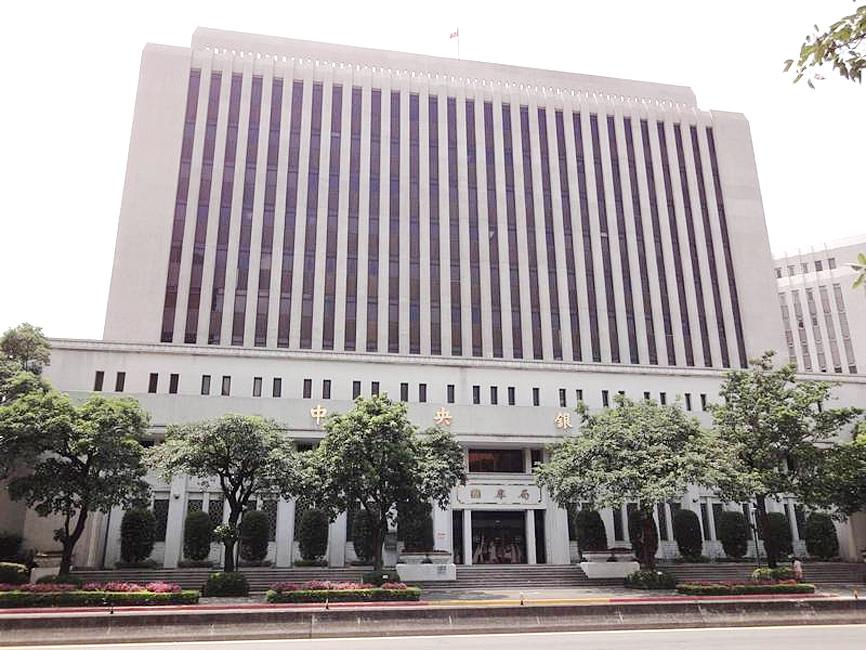The central bank met with eight local lenders on Thursday to call for restraint in real-estate financing, which approached a record high in September, sparking concern that it might drive up property prices.
The meeting came less than a week after the monetary policymaker’s talks on Friday last week with six mortgage operators to convey its concern over loose lending.
“Banks should better manage their resources to prevent an overflow of credit to the real-estate market, which indirectly encourages property speculation and land hoarding, and contributes to property price hikes,” the bank said in a statement.

Photo: Wu Chi-lun, Taipei Times
Government data showed that commercial property and land deals last quarter soared at paces rarely seen in recent years, bucking sharp declines around the world amid the COVID-19 pandemic.
Property analysts have attributed the fast pickup to Taiwan’s stable economy and quick control of the outbreak, with low interest rates and ample liquidity also lending support.
The central bank in March cut the rediscount rate to a record low of 1.125 percent to ease households’ financial burden, but that inadvertently became an incentive for property investment after Taiwan emerged from the outbreak in May.
As of September, real-estate lending stood at 35.8 percent of total outstanding loans, close to the historical peak of 37.9 percent, the central bank said, adding that several banks are approaching the limits for mortgage, construction and land financing.
Local banks have offered generous loans at cutthroat borrowing costs and with protracted grace periods, as they vie for customers, the bank said.
Lax lending includes unreasonable loan-to-value ratios, failing to monitor the progress of property developments and easy loans for unsold housing units, it said.
Such practices encourage land hoarding and excessive leveraging that are pushing up property prices, posing a threat to the health of the nation’s property market and financial system, the bank said.
“Lenders must take up their social responsibility and guide funds to real investment that can create job opportunities and boost income rather than overly concentrating on property lending,” the bank said.
Small and medium-sized companies affected by the pandemic can use help from financial institutions, it said.
Central bank Deputy Governor Chen Nan-kuang (陳南光) has several times expressed concern over the formation of a property bubble and pressed for pre-emptive measures to reverse the trend.
The central bank said it has sent officials to visit lenders to see if they exercise due caution when handling real-estate loan requests.
It denied that such visits are “formal inspections.”

South Korea’s equity benchmark yesterday crossed a new milestone just a month after surpassing the once-unthinkable 5,000 mark as surging global memory demand powers the country’s biggest chipmakers. The KOSPI advanced as much as 2.6 percent to a record 6,123, with Samsung Electronics Co and SK Hynix Inc each gaining more than 2 percent. With the benchmark now up 45 percent this year, South Korea’s stock market capitalization has also moved past France’s, following last month’s overtaking of Germany’s. Long overlooked by foreign funds, despite being undervalued, South Korean stocks have now emerged as clear winners in the global market. The so-called “artificial intelligence

‘SEISMIC SHIFT’: The researcher forecast there would be about 1.1 billion mobile shipments this year, down from 1.26 billion the prior year and erasing years of gains The global smartphone market is expected to contract 12.9 percent this year due to the unprecedented memorychip shortage, marking “a crisis like no other,” researcher International Data Corp (IDC) said. The new forecast, a dramatic revision down from earlier estimates, gives the latest accounting of the ongoing memory crunch that is affecting every corner of the electronics industry. The demand for advanced memory to power artificial intelligence (AI) tasks has drained global supply until well into next year and jeopardizes the business model of many smartphone makers. IDC forecast about 1.1 billion mobile shipments this year, down from 1.26 billion the prior

Chinese artificial intelligence (AI) start-up DeepSeek’s (深度求索) latest AI model, set to be released as soon as next week, was trained on Nvidia Corp’s most advanced AI chip, the Blackwell, a senior official of US President Donald Trump’s administration said on Monday, in what could represent a violation of US export controls. The US believes DeepSeek will remove the technical indicators that might reveal its use of American AI chips, the official said, adding that the Blackwells are likely clustered at its data center in Inner Mongolia, an autonomous region of China. The person declined to say how the US government received

People stand in a Pokemon store in Tokyo on Thursday. One of the world highest-grossing franchises is celebrated its 30th anniversary yesterday.